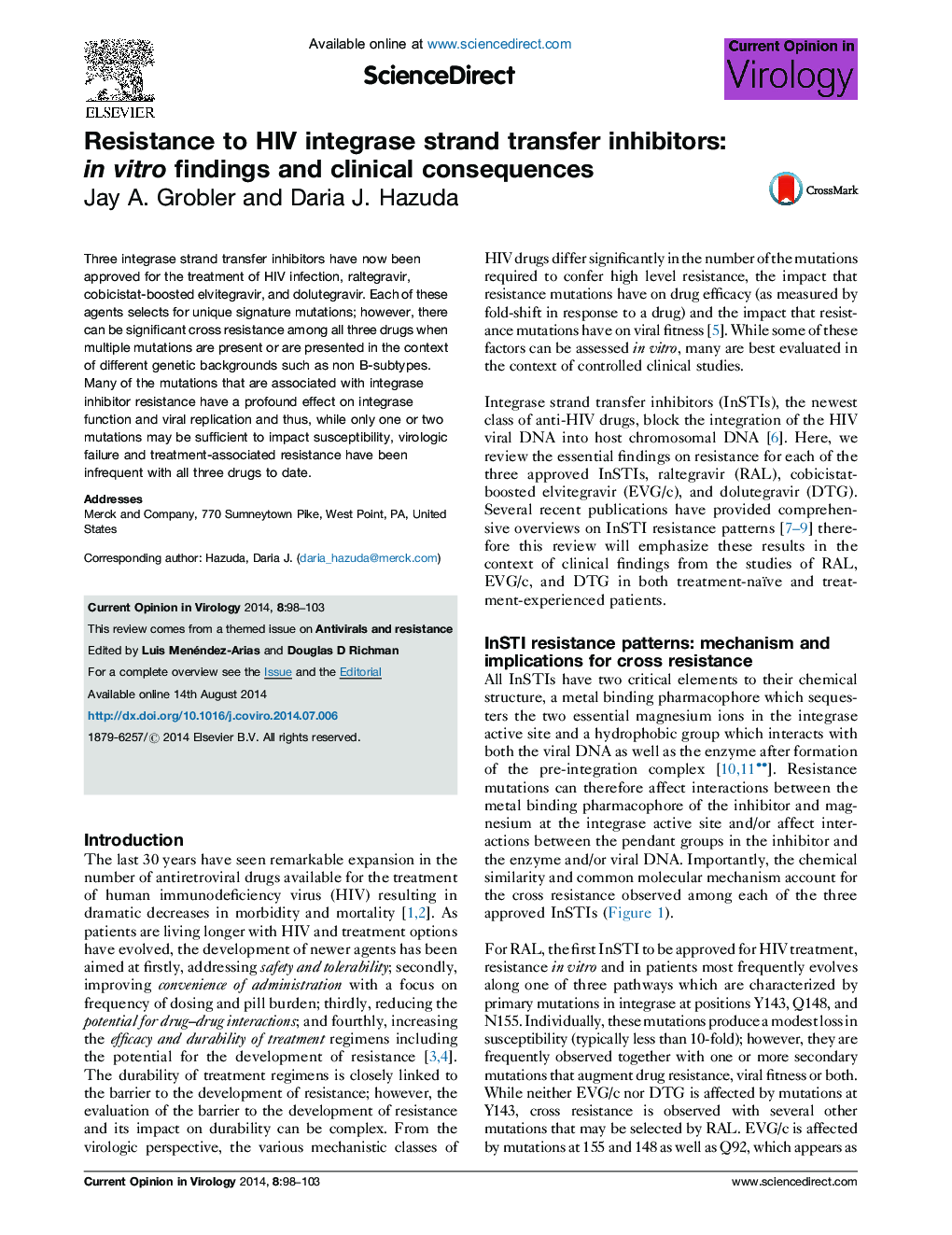| Article ID | Journal | Published Year | Pages | File Type |
|---|---|---|---|---|
| 5806768 | Current Opinion in Virology | 2014 | 6 Pages |
â¢InSTIs exhibit low rates of virologic failure and resistance in treatment-naïve patients.â¢Higher rates of InSTI resistance observed in treatment-experienced patients.â¢Three approved InSTIs exhibit overlap in overall resistance profiles.â¢Resistance to InSTIs depends on genetic context and differs in B and non-B subtypes.
Three integrase strand transfer inhibitors have now been approved for the treatment of HIV infection, raltegravir, cobicistat-boosted elvitegravir, and dolutegravir. Each of these agents selects for unique signature mutations; however, there can be significant cross resistance among all three drugs when multiple mutations are present or are presented in the context of different genetic backgrounds such as non B-subtypes. Many of the mutations that are associated with integrase inhibitor resistance have a profound effect on integrase function and viral replication and thus, while only one or two mutations may be sufficient to impact susceptibility, virologic failure and treatment-associated resistance have been infrequent with all three drugs to date.
